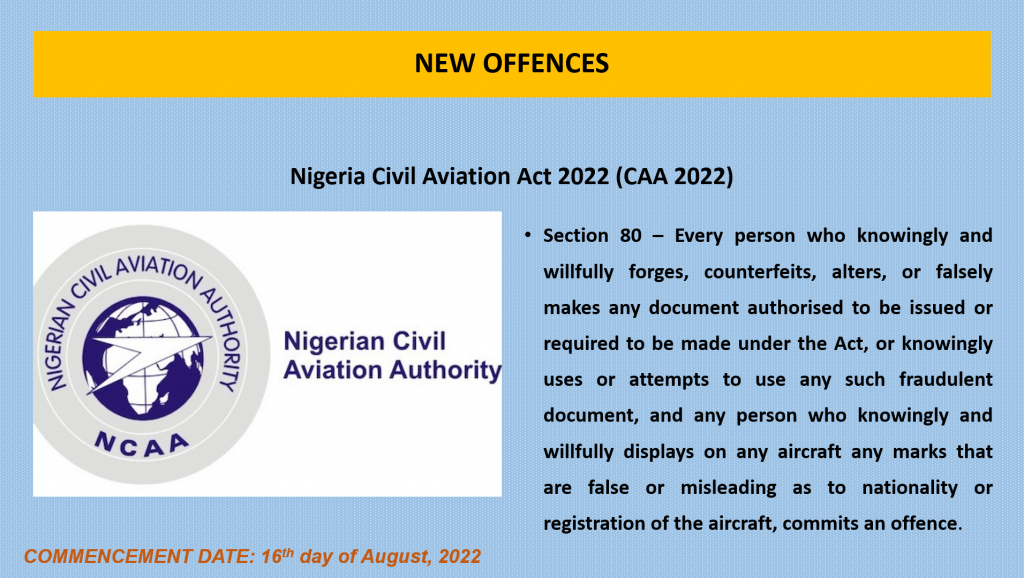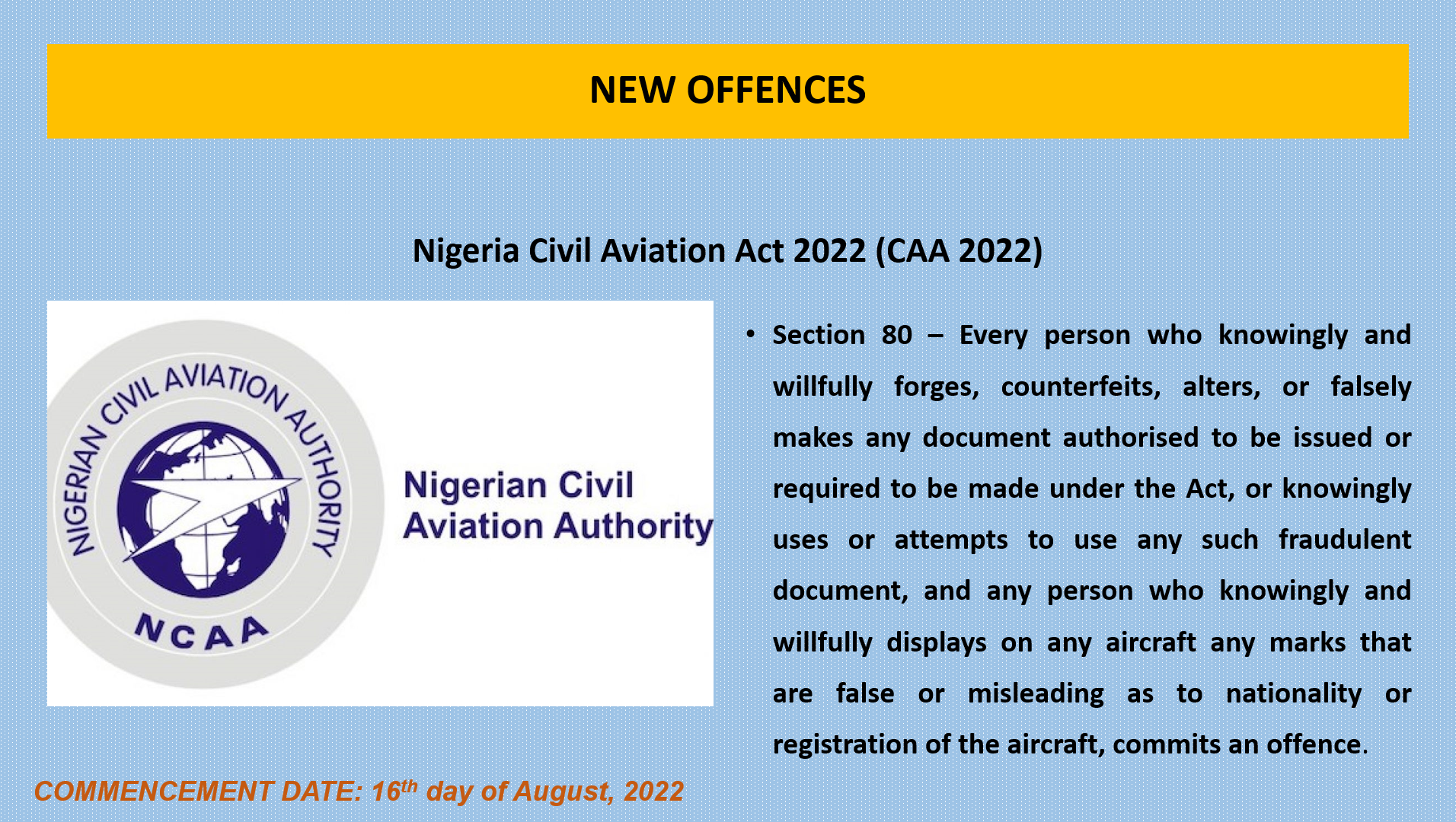
The Significance and Implementation of Section 80 in Nigeria’s Aviation Act 2022
Within the intricate web of regulations governing aviation safety and compliance, Section 80 of Nigeria’s Aviation Act stands as a pillar of legal enforcement. This section explicitly addresses the consequences and legal ramifications for knowingly and willfully engaging in acts of forgery, counterfeiting, alteration, or falsification of any document authorized by the Act or required to be produced under its provisions. Moreover, it encompasses the intentional display of false or misleading marks on aircraft about their nationality or registration.
No Room for Ambiguity in the New Act
The language of Section 80 leaves no room for ambiguity. It deems any individual culpable who engages in the forgery, counterfeiting, or fraudulent alteration of documents essential to aviation operations. Furthermore, the deliberate display of misleading marks on aircraft is considered an offense under this provision.
- ✈️ How Commercial Airlines Boost Nigeria’s GDP
- Error Management Techniques in Flight Operations
- Safety and Schedule Integrity in Airline Operations
- Why You Must Come to Nigeria for Business and Tourism
- Managing Airline Passenger Expectations
Advantages of the New Act
The advantages of such a stringent regulation are multifaceted. Foremost, it acts as a formidable deterrent against any attempts to compromise the integrity, safety, and legal compliance within Nigeria’s aviation industry. By explicitly criminalizing such actions, Section 80 serves to safeguard the authenticity and reliability of crucial aviation documentation, which are vital for the safety and legality of air travel.
Advantages of Implementing the New Act
Implementation of Section 80 is pivotal to ensuring the sanctity of aviation operations within Nigeria. The clear definition of offenses and their consequences within this section streamlines legal proceedings, making it unequivocally clear that any such actions are deemed criminal. Its implementation is not just a legal formality but a fundamental step in upholding the credibility and safety standards of the aviation industry.
The provision is not just a punitive measure but also a proactive tool, encouraging compliance and ethical behavior within the industry. It serves as a warning to potential wrongdoers and underscores the legal gravity of such actions, emphasizing the importance of adhering to lawful procedures and ethical standards in aviation operations.
Conclusion
In essence, Section 80 of Nigeria’s Aviation Act plays a crucial role in maintaining the integrity, safety, and legality of the aviation industry. Its implementation acts as a deterrent, fostering a culture of compliance and ethical conduct while ensuring that aviation operations within the country adhere to the highest standards of safety and legality.





This is very good for the aviation industry I hope the implementation will be successful….